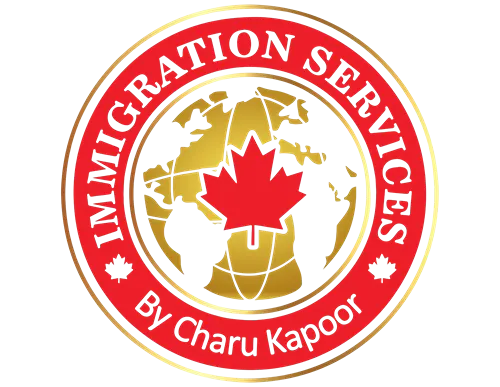International Mobility Program
The International Mobility Program (IMP) provides a framework that allows Canadian employers to hire temporary foreign workers without the mandatory requirement of obtaining a Labour Market Impact Assessment (LMIA). Typically, an LMIA is a prerequisite for Canadian employers to hire foreign workers temporarily. However, the IMP offers several exemptions to this LMIA requirement, facilitating a more streamlined process for hiring foreign workers in specific situations.
These exemptions under the IMP are designed to accommodate scenarios where the hiring of foreign workers aligns with broader economic, cultural, or competitive advantages for Canada. Additionally, reciprocal benefits for both Canadians and permanent residents play a significant role in determining whether a specific job can be exempted from the LMIA requirement.
The IMP recognizes that certain categories of foreign workers bring unique skills, expertise, and contributions to Canada, contributing to the country’s growth and development.


Discover your Canadian
Immigration Options
What is International Mobility Program?
The International Mobility Program (IMP) offers Canadian employers the opportunity to hire foreign workers for temporary work permits without the requirement of obtaining a Labour Market Impact Assessment (LMIA). This can provide several benefits to both employers and workers, streamlining the hiring process and making it more efficient.
In contrast to the Temporary Foreign Worker Program (TFWP), where work permits are contingent on labor market conditions in specific cases, the International Mobility Program is oriented towards serving Canada’s broader economic and cultural interests. This can manifest in various ways:
- The administration of the IMP is primarily overseen by Immigration, Refugees and Citizenship Canada (IRCC). Other federal government departments involved include the Canada Border Services Agency (CBSA) and Employment and Social Development Canada (ESDC).
- The IMP operates independently from the Temporary Foreign Worker Program (TFWP), which is mainly managed by ESDC with collaborative efforts from IRCC and CBSA.
- The International Mobility Program Unit within IRCC is dedicated to assisting companies seeking to hire through this program.
What is LMIA-Exemption?
An LMIA-exemption pertains to a scenario where a Canadian employer is not required to obtain a Labour Market Impact Assessment (LMIA) to hire a temporary foreign worker. The International Mobility Program, managed jointly by Employment and Social Development Canada (ESDC) and Immigration, Refugees and Citizenship Canada (IRCC), oversees a categorized list of LMIA-exemptions.
These exemptions are granted under specific conditions:
- Broader Economic, Cultural, or Competitive Advantages for Canada: The exemption is granted when hiring a foreign worker offers advantages such as enhancing Canada’s economy, culture, or competitiveness.
- Reciprocal Benefits for Canadians and Permanent Residents: The exemption takes into account the benefits that Canadians and permanent residents would receive from hiring a foreign worker in the given position.
To utilize the LMIA-exemption under the International Mobility Program, a Canadian employer must adhere to the following steps:
- Qualify the Position or Worker: Verify that the intended position or worker satisfies the criteria for an LMIA-exemption.
- Pay the Compliance Fee: Pay the employer compliance fee of $230 CAD to proceed with the application.
- Submit the Job Offer: Provide the official job offer details through the Employer Portal of the International Mobility Program.
Upon successfully completing these steps, the foreign national becomes eligible to apply for their own work permit. For LMIA-exempt workers applying from outside of Canada, the Global Skills Strategy offers the possibility of expedited work permit processing, especially if the worker’s role falls within NOC Skill Level A or 0. This streamlined process enhances Canada’s ability to attract and retain top global talent for specific positions that benefit the country’s economic and social growth.
International Agreements
Numerous LMIA-exemptions are made accessible through international agreements forged between Canada and other countries. These agreements facilitate the movement of specific categories of employees between Canada and partner nations, provided they can demonstrate a positive impact from such exchanges. Canada has successfully negotiated a variety of Free Trade Agreements, each encompassing a spectrum of LMIA-exemptions:
North American Free Trade Agreement (NAFTA)
This agreement allows for streamlined cross-border movement of eligible professionals, investors, and traders between Canada, the United States, and Mexico.
Canada-Chile FTA / Canada-Peru FTA / Canada-Colombia FTA / Canada-Korea FTA
These Free Trade Agreements enable the exchange of certain skilled workers, professionals, and other qualified individuals between Canada and the respective countries mentioned.
Canada-European Union Comprehensive Economic and Trade Agreement (CETA)
This agreement facilitates the movement of specific professionals, intra-corporate transferees, and business visitors between Canada and European Union member countries.
General Agreement on Trade in Services (GATS)
This global agreement under the World Trade Organization (WTO) framework fosters cross-border trade in services, leading to specific exemptions for certain categories of workers entering Canada.
Through these international agreements, Canada aims to encourage mutually beneficial trade relationships by allowing skilled individuals to move seamlessly across borders while contributing positively to the economies and societies of both countries involved.
Canadian Interest Exemptions
Another popular set of LMIA-exemptions falls within the broader spectrum of Canadian Interest exemptions. These exemptions, falling under this category, need to substantiate that the exemption aligns with Canada’s best interests, either by bringing substantial advantages to Canadians or by fostering reciprocal employment relationships with other nations.
To qualify for an LMIA-exemption categorized as “significant benefit for Canadians,” the employment of a foreign national must exhibit a noteworthy social or cultural contribution to Canada. Typically, immigration officers will evaluate the foreign national’s past accomplishments and consider endorsements and recommendations from eminent experts in the relevant field to ascertain the extent of the significant benefit being brought to Canada.
Intra-Company Transferees
Another approach to obtaining an LMIA-exemption for significant benefit is by utilizing LMIA-exemptions designed for intra-company transferees. Under this provision, specific companies have the opportunity to transfer a foreign national to a Canadian location, with the intention of enhancing the quality of their business operations for the betterment of the Canadian community.
Additional LMIA-Exemptions
While most LMIA-exemptions are provided based on international agreements or for the best interests of Canada, there exist several LMIA-exemptions that fall outside these categories. Occasionally, LMIA-exemptions are authorized on humanitarian and compassionate grounds. Additionally, specific candidates aiming for Canadian permanent residency might qualify to apply for LMIA-exempt work permits.

